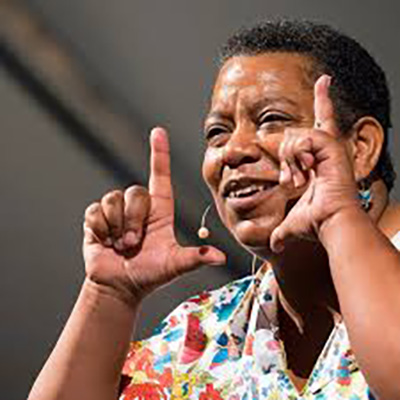
by Sharon Haddock | Sep 7, 2021 | About Storytelling, Blog, Featured, Festival, Scheduled, Storytellers
Sheila Arnold took a leap of faith “with a trampoline in place” when she decided to try storytelling as a career. She was a single mom with a young son when her parents offered her financial support and a safety net if she wanted to give it a serious go. They took care of her bills and her son who also offered his unconditional support.
“When God opened the door in 2003, I told my parents ‘I should do this.’”
She had been telling stories at her son’s daycare center. That was almost 20 years ago, in fact, it was 18 years on Sept. 3.
Since that time she’s become a successful, full-time storyteller, traveling all around America sharing songs, stories and historic character presentations.
She enjoys writing, telling, directing and helping others learn to enjoy stories. She doesn’t put herself in a niche.
“If I like a story, I tell the story,” Arnold shares. “I tell several original stories, inspirational and Christian stories. I tell whatever feels good in my mouth!”
She’s a history buff as well as a story lover.
She brings to life 13 different women from history, including her favorite representative of the early slave people, tavern slave “Ol’ Bess.”
She has been heavily involved with the Colonial Williamsburg, Virginia, presentations as a character. She has been a featured regional storyteller at the Williamsburg Storytelling Festival. She is the CEO and a lead performer of the television series History’s Alive!
She’s been successful enough to be able to pay her parents back for their financial support and her proud son is now a high school senior.
He has told her, “Mom, this is what you’re supposed to be!”
Arnold is happy to be telling stories because she believes storytelling is truth-telling, creating a community.
“It may be just between you and your grandchild,” she says.
She acknowledges that stories entertain but stresses that storytelling is truth-telling.
“Take some of the funniest stories and you realize you are also getting some truth. Look at Bil Lepp’s stories, Arnold said. (Lepp is also a storyteller at the Timpanogos Storytelling Festival.)
“It’s also illuminating. I love that moment when you realize the story is about more than the story. I love that part!”
This is her second year at the Timpanogos Storytelling Festival.
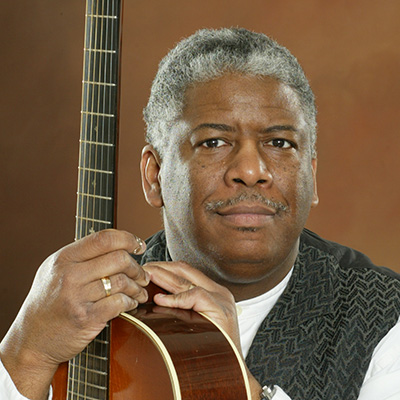
by Sharon Haddock | Sep 4, 2021 | About Storytelling, Blog, Featured, Festival, Scheduled, Storytellers
Robert Jones, also known and ordained the Reverend Robert Jones, was invited to be a
storyteller at the 2020 Timpanogos Storytelling Festival.
Due to the coronavirus pandemic, It turned out to be a virtual festival only but he still found it
to be a highlight experience as the storytelling community accepted him without reservation.
(The 2021 festival is both live and virtual.)
“It was wonderful. It’s such a welcoming fraternity,” he said.
He is just one of several storytellers on the circuit who have been or currently serve as
ministers.
“The two things are connected,” Jones said, “preaching truth and telling meaningful stories.”
He points out that the Bible is actually the ultimate ancient way of telling stories and of
transmitting information.
Jones said society today is so divided that people need stories more than ever.
So he’s intent on telling stories that teach cultural diversity and tolerance.
The really great stories bring us together, he said.
“Tolerance?” That’s something we do when we’re in pain, something that we bear, like a
toothache.
“Cultural diversity is the story to celebrate. We celebrate the things that enhance your life,” he
said.
Jones started telling traditional African American and American humorous and powerful stories
to go along with his music.
He’s a self-taught blues musician and a longtime DJ.
“People would tell me they enjoyed my stories as much as my music,” Jones said.
He has entertained audiences of all ages in schools, prisons, churches, libraries. and colleges.
He was invited to the National Storytelling Festival. He told stories there and determined right
away, “That’s what I want to be when I grow up!”
This year will be his and his wife’s first visit to Utah.
He’s anxious to be here.
“I’ve heard nothing but good things about the Timpanogos Festival,” he said.
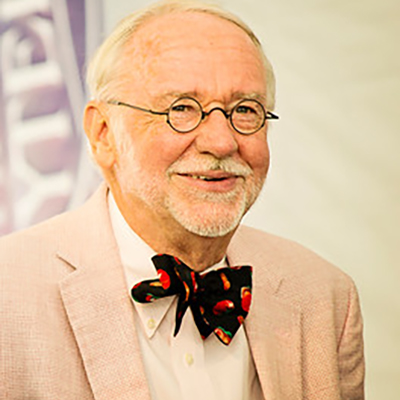
by Sharon Haddock | Sep 1, 2021 | Blog, Featured, Festival, Scheduled, Storytellers
Donald Davis—who has become an icon of storytelling at the Timpanogos Storytelling Festival and who is a master at taking listeners to the North Carolina mountains to laugh at stories about spilled syrup, broken bones, “doobies,” and pink lotion rubbed all over the baby—says he grew up listening to and loving stories.
“I did not choose to be a storyteller. I simply grew up in the North Carolina mountains in a world that was pre-television and with relatives who still did not even have electricity. There was lots of visiting on porches and in living rooms and kitchen. . . . I didn’t even know it was called storytelling,” Davis explains.
When he was in school, he would share his stories with others. “This continued on through college and into early adulthood.”
As storytelling festivals took root, Davis started getting calls asking him to be a teller.
“The first festival at which I was featured was the National Storytelling Festival. I have now told there for forty-one years.
“It was purely a matter of demand that led me to spend my life in this way. The invitations did not stop and pretty soon they included asking for workshops as well as performances. Then a publisher asked for a book.”
Davis believes “Storytelling just happened to and for me!”
He thinks things in life happen the way they are supposed to happen, “You cannot force them because you simply want to be or do something.”
He does, however, encourage his audience to search their memories and find the stories they can share.
“What I love is seeing other people relate to the stories I tell by remembering and telling their own stories. When they come up later and say “that reminded me of” I know they are going home with a story they would not have remembered if they had not first been a listener,” Davis says.
“The audience is my partner in telling. I describe pictures and watch the listeners ‘til they show me that they are not listening to but rather watching the story happen. Then we go forward.”
Davis has been part of the Timpanogos Storytelling Festival since it started 32 years ago, telling stories, teaching workshops and conferences; making friends.
He is beloved, funny. and unique. He says the same things about the Festival.
“Timpanogos is my favorite festival and I look forward to being back after missing the reality of last year.”
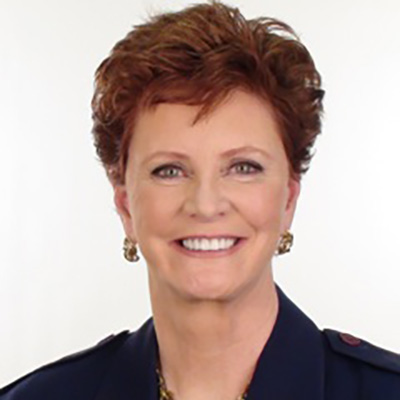
by Sharon Haddock | Aug 30, 2021 | Blog, Featured, Festival, Scheduled, Storytellers
For Susan O’Halloran, inclusion has been her passion since she was a teenager and met Dr. Martin Luther King’s people in Chicago.
“I’ve been telling stories “professionally” since the 1970s.” O’Halloran says, “I did what we would now call Performance Art.
“In the 1950s and 60s, I grew up in a storytelling family — not everyone had TVs — and so we entertained each other sitting out on our Chicago front porch steps. Neighbors would gather in the evening and you learned the value of keeping people’s interest with a good story.
“I really started to pursue storytelling as a career in 1990 when I moved back to Chicago and started working with Jim May, Beth Horner, Nancy Donoval, Anne Shimojima and Syd Lieberman. It was a hugely supportive community and I feel that my storytelling really began to grow.
“I won’t be telling a lot of my social justice repertoire at Timpanogos because I’m told that there will likely be children in every set. While my stories always have humor, some of our history is hard to hear. When I do take on difficult subjects, I find stories are the best way because they can bring people together rather than divide us. When stories open our hearts, we can feel our common love for each other and our country.”
O’Halloran is the author of several books and diversity curricula and the producer/director of multicultural performances and films including “Black, White and Brown: Tribes & Bridges at the Steppenwolf Theatre” and “More Alike Than Not: Stories of Three Americans – Catholic, Jewish and Muslim.”
She teaches diversity and inclusion seminars in Fortune 500 companies and Graduate Schools of Business. Sue also works with nonprofits to capture more press, volunteer and fundraising attention through the power of stories.
The Chicago Reader’s Critic Choice said, “O’Halloran has mastered the Irish art of telling stories that are funny and heart-wrenching at the same time.”
“I tell many kinds of stories but when I am telling autobiographically, the stories fall into two broad categories: personal/family stories and teaching stories. With the teaching stories, the trick is to provide inspiration, to show people that the solutions are truly doable without bringing the whole piece to a grinding halt.”
O’Halloran presents with humor, suspense, heartbreak and drama. The audience learns as the character in the story learns.
“If we are having realizations at the same time, the audience is more likely to change right along with me. They’ll eventually end up understanding what I’d like them to understand, not because I preached at them or knew more than they knew, but because we took a journey together.”
“I find that personal and teaching stories are similar in the way that matters most: together, we encounter our despair, our immeasurable victories and the perfectly, imperfect, common experience of being human,” O’Halloran says.
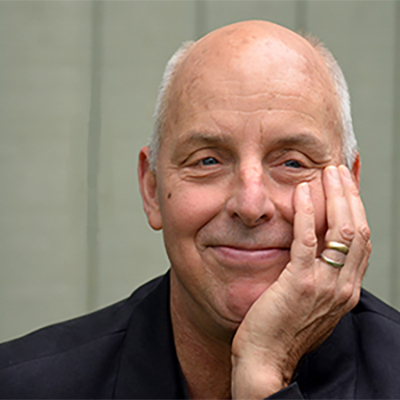
by Sharon Haddock | Aug 20, 2021 | Blog, Featured, Festival, Scheduled, Storytellers
Bill Harley likes how spoken words and music go together, creating a kind of magical connection.
They always have, Harley says.
So he blends words and music in his storytelling to educate and to create community.
“At times, I feel like I’m a conduit for something larger than me,” Harley says. “I started telling stories in performance while I was in college, when I became interested in oral traditions.
“During that time, I was also working with children in after-school programs and a day camp.
“I was intrigued and amazed by the effects a told story had on unruly campers.”
Something happens in a room where everyone is listening to the same story, Harley explains. “There’s a web of connection that is built—a gathered presence. This is different from performance on other media. I’ve said before that I view storytelling as an intimate response to an impersonal culture.
“Connecting with the audience involves being present—aware of the story, aware of my own actions and senses, and aware of the people in the space with me. There’s an inherent vulnerability in this presence, and that vulnerability is what makes a teller authentic—someone the listener can trust.
“When I have told a story for a while, it takes on a life of its own,” Harley explains, whether it’s a story about sitting down to eat with a house stuffed with animals or a yarn about pirates who steal all the socks and underwear.
Bill Harley is considered by fans and peers to be one of the best storytellers in the country, a celebration of commonality and humanity, delivered through comic narrative songs and spoken pieces.
Over the past 40 years, his work has influenced generations, touring nationally as well as internationally with his guitar, song, and hallmark humor.
He has produced 35 award-winning recordings and has been described as the “Mark Twain of contemporary kids’ music.”
The Rhode Island Council for the Humanities noted the core of his work as building community; promoting our common humanity; and encouraging lifelong learning, exploring, and growing.
His newest work is a series about the trials and tribulations of fourth grader Charlie Bumpers. The first book in the series won the Beverly Cleary Children’s Choice award.





